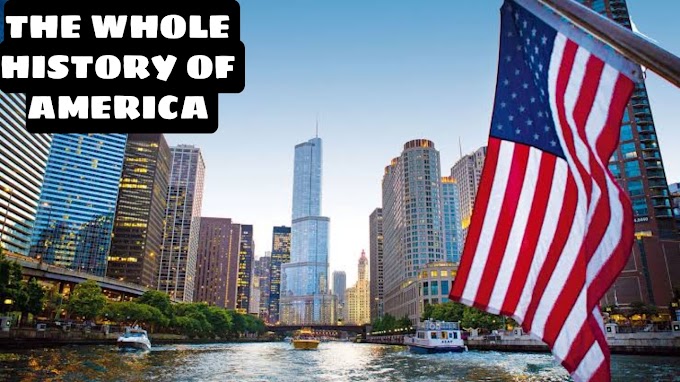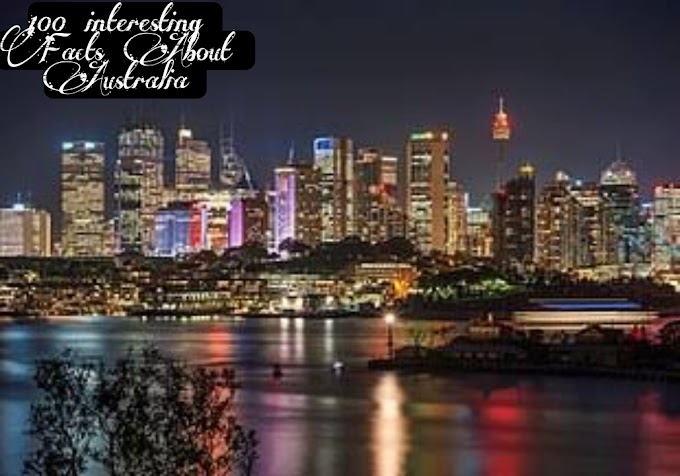THE WHOLE HISTORY OF MOZAMBIQUE
Hello Friends:
Welcome to countries facts so today in this Article I will show you the whole history of Mozambique a brief history of mozambique hello this flowers welcome to another interesting video presented to you by this floor and thanks for watching in this video we shall look at the brief history of mozambique mozambique a scenic country in southeastern africa is a country rich in natural resources biologically and has cultural diversity in a tropical climate its extensive coastline front in the mozambique channel which separates middle and africa from ireland of madagascar are for some of africa's natural harbours these have allowed mozambique an important role in the maritime economy of the indian ocean while the country's whites and beaches are an important attraction for the growing tourism industry fertile stars in the northern and central areas of mozambique have yielded a varied in abundant agriculture and the great zambezi river has provided ample water for irrigation and the basis for originally important hydroelectric power industry yet mozambique's turbulent recent history has kept its people from fully enjoying these natural advantages and from developing a stable diversified economy a former colony of portugal mozambique has an intriguing history which still plays a major role in the country's current dynamics and politics hence in this video we shall take a trip down memory lane to look at the brief history of mozambique if you are new here welcome be sure to subscribe until notifications so you don't miss any of our videos research uncovered in 2007 by julio marceda of the university of calgary recovered dozens of one hundred thousand year old stone tools from a deep limestone cave near lignia in mozambique showing that wild sagun the ancestor of the chief cereal consumed today in sub-saharan africa for flour bread porridges and alcoholic beverages was being consumed by homo sapiens along with african palm wine the false banana pigeon pears wild oranges and the african potato this is the earliest direct evidence of humans using pre-domesticated cereals anywhere in the world indicating that this country was as well ahead of time in the world the first inhabitants of what is now mozambique were the sun hunters and gatherers who were the ancestors of the kosani people between the 1st and 5th centuries a.d waves of bantu-speaking peoples migrated from the north through the zambezi river valley and then gradually into the plateau and coastal areas who are predominantly farmers and iron workers when vasco da gama exploring for portugal reached the coast of mozambique in 1498 arab trading settlements had existed along the coast and outlying islands for several centuries and political control of the coast was in the hands of a string of local sultans muslims have actually lived in the region for quite some time as modern day mozambique itself is a derivative of the name of the arab sheikh musa bin bake who rode the area at the time within to most of the local people embracing islam from about the 1500s portuguese trading post and forts displays the arabic commercial and military hegemony becoming regular points of call on the new european sea route to the east the voyage of vasco da gama around the cape of good hope in 1498 marked the portuguese entry into trade politics and society of the region the portuguese gained control of the island of mozambique and the port city of sofala in the early 16th century and by the 1530s small groups of portuguese traders and prospectors seeking gold penetrated the interior regions where they set up garrisons and trading posts at cena and tete on the river zambezi and tried to gain exclusive control over the gold trade the portuguese attempted to legitimize and consolidate their trade and settlement positions through the creation of brazos or land grants tied to portuguese settlement and administration while prizes were originally developed to be held by portuguese through intermarriage they became african portuguese or african indian centers defended by large african slave armies known as chikunder historically within mozambique there was slavery as human beings were born and sold by african tribal chiefs arab muslim traders portuguese and other european traders as well although portuguese influence gradually expanded its power was limited and exercised through individual settlers and officials who were granted extensive autonomy the portuguese were able to rest much of the coastal trade from arab muslims between 1500 and 1700 but with the arab muslim seizure of portugal's key foothold at fort jesus on mumbasa island now in kenya in 1698 the pendulum began to swing in the other direction during this wars the masri and omani arabs reclaimed much of the indian ocean trade forcing the portuguese to retreat south many puzzles had declined by the mid-19th century but several of them survived during the 19th century other european powers particularly the british and the french became increasingly involved in the trade and politics of the region around the portuguese east african territories by the early 20th century the portuguese achieved the demonstration of mozambique to large private companies like the mozambique company the zambezia company and the nasa company which was controlled and financed mostly by the british which established railroad lines to neighboring colonies south africa and rhodesia although slavery had been legally abolished in mozambique at the end of the 19th century the chartered companies enacted the forced labour policy and supply chip and often forced african level to the mines and plantations of the nearby british companies in south africa the zambezia company the most profitable chartered company took over a number of smaller prezero holdings and established military outposts to protect its property the chatter companies build roads and ports to bring their goods to the market including the railroad lincoln present-day zimbabwe with the mozambique port of bera due to their unsatisfactory performance and the shift under the corporatist estado novo regime of oliveira salazar towards a stronger portuguese control of portuguese empire's economy the company's concessions were not renewed when they ran out this was what happened in 1942 with the mozambique company which however continued to operate in the agricultural and commercial sectors as a corporation and had already happened in 1929 with the termination of the nyasa company's concession in 1951 the portuguese overseas colonies in africa were rebranded as overseas provinces of portugal as communists and anti-colonial ideologies spread out across africa many clandestine political movements were established in support of mozambican independence these movements claimed that since policies and development plans were primarily designed by the ruling authorities for the benefit of mozambique's portuguese population little attention was paid to mozambique's tribal integration and the development of its native communities these affected the majority of indigenous population who suffered both state-sponsored discrimination and enormous social pressure the front for the liberation of mozambique frelimo initiated the guerilla campaign against portuguese rule in september 1964. this conflict along with the two others already initiated in the other portuguese colonies of angola and portuguese guinea became part of the so-called portuguese colonial war which was between 1961 to 1974. from a military standpoint the portuguese regular army maintained control of the population centers while the guerrilla forces start to undermine their influence in rural and tribal areas in the north and west as part of their response to philemo the portuguese government began to pay more attention to creating favourable conditions for social development and economic growth but apparently was already late as independence feelings were already swelling after 10 years of sporadic warfare and portugal's return to democracy to a left-wing militia in lisbon which replaced portugal's estadonova regime with a military jaunter for lima to control of the territory within a year most of the 250 000 portuguese mozambique had left some expelled by the government of the nearly independent territory some fleeing in fear and mozambique became independent from portugal on 25th june 1975. a law had been passed on the initiative of the then relatively unknown armando gueboza of the ferimo party ordering the portuguese to leave the country in 24 hours with only 20 kilograms of luggage unable to salvage any of their assets most of them returned to portugal penniless post-independent formed in 1975 mozambique national resistance renamo an anti-communist group sponsored by the rhodation intelligence service and the apathetic government in south africa launched a series of attacks on transport routes schools and health clinics and the country descended into civil war in 1994 mozambique negotiated in kumati accord with pw botha and the south african government in which mozambique was to expel the african national congress in exchange for south africa's top in support of hernamo at first both sides complied but it soon became evident that the infringements were taking place on both sides and the war continued in 1986 mozambique and president samora maquel died in an air crash in south african territory although unproven many suspect the south african government of responsibility for his death mackel was replaced by joakim chisano as president the war was marked by huge human rights violations by both renamo and felimo with support for enamel from south africa drying up in 1990 the first direct talks between the philemon government and renamo were held in november 1990 a new constitution was adopted and mozambique became a multi-party state with periodic elections and guaranteed democratic rights on october 4th 1992 the rome general peace accords negotiated by the community of saint aguil with the support of the united nations was signed in rome between president chisano and renamo leader alfonso zlakama which formally took effect on october 15 1992. a u.n peacekeeping force unomahas oversaw a two-year transition to democracy which led the elections in 1994 which were accepted by most parties as fair and free ferlimo won on the joachim chisano waranamo led by alfonso zlakama run as the official opposition in 1995 mozambique joined the commonwealth of nations becoming at that time the only member nation that had ever been part of the british empire by mid-1995 over 1.7 million refugees who had sought asylum in neighboring countries had returned to mozambique part of the largest repatriation witness in sub-saharan africa an additional 4 million internally displaced persons have returned to their homes in december 1999 mozambique held elections for a second time since the civil war which were again won by fulimo who was accused of fraud presidential and national assembly elections took place on december one to two in 2004 with felimo candidate armando gibuza winning and was inaugurated as the president of mozumbique on february 2nd 2005. despite all these struggles mozambique's economy is recovering led by investors and tourists from neighboring south africa and from east asia a number of returning portuguese nationals have also invested in the country as well as some italian organizations coal and gas have grown to become large sectors and income per capita tripled over 20 years since the civil war in 2015 mozambique was declared free of land mines marking an end to a 22-year effort to remove explosive devices planted during the war of independence and civil war and final liberation for the people there you have it this flores that was a brief history of mozambique thanks for watching this Article if you did enjoy this Article do also give it a thumbs up and do not forget to subscribe and share with your friends bye.

















